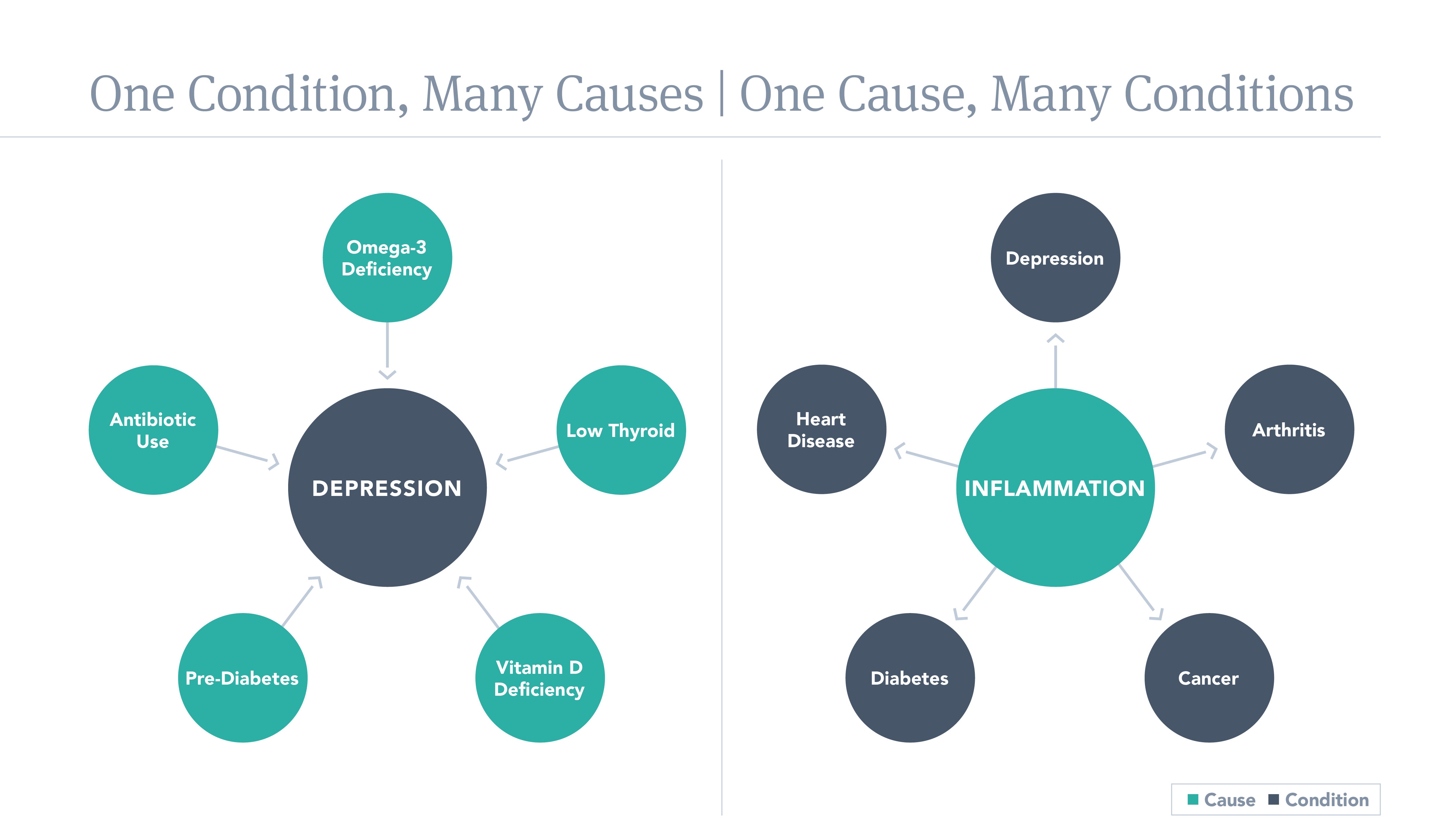
05 Mar Functional Medicine: A Pill Everyone Can Swallow. Why A Functional Medicine Approach Is In Your Future.
If you’re tired of searching for a provider to listen to your needs, tired of searching for answers to your nagging symptoms, tired of taking medication to cover up the side effects of another medication or simply wanting to optimize your health, then delving into a functional approach might just have the answers you’re looking for.
In Chris Kresser’s book “Unconventional Medicine” Dr. Mark Hyman, a functional medicine pioneer states the following: “So, what is disease? In old times people used to think that a disease was some actual entity or thing which had got into the body in some way, and was there lying hidden and secreted, and was to be cast out. This idea, which we now know to be true only in a few specific instances, was at one-time general. The conclusion is that all disease is disordered function. Here, then, I say, is the highest justification for all treatment being based upon the principle of restoring disordered functions to order, and this is what I have ventured to term Functional Medicine.”
Is Our Current Model Working?
Don’t get me wrong, as for acute care; our current system checks a lot of the boxes to feel comfortable you aren’t going to die from something unforeseen like our ancestors just generations ago. However, it focuses on treating a person based on symptoms and doesn’t address underlying causes of disease or the fact that every individual has a unique bio makeup, thus requiring a unique approach to health.
The simple truth is that chronic disease is an epidemic that is not improving or going anywhere anytime soon unless a drastic change in our approach to health occurs. According to the CDC, a staggering 6 out of 10 Americans have a chronic condition and 4 out of 10 have two or more. Alzheimer’s is now the 6th leading cause of death in the U.S. 1 in 6 Americans have an autoimmune disease. Autism has gone from 1 in 500 in 1999 to 1 in 45 children on the autism spectrum presently. That is a mind-blowing 10-fold increase in just two decades. These are only a few examples, but the recurring theme in all these conditions is inflammation. Daily we are faced with dietary choices that leave us overfed and undernourished, lacking the amount of nutrients we need to thrive.
| “A person who has their health has a thousand dreams, but a person without their health has but one dream.”
What is a functional health approach?
Functional approaches begin with identifying the root cause of your symptoms rather than covering it up. The Institute for Functional Medicine is a leader in advanced training for functional medicine practitioners and has a great example for this. As you can see from the graphic, a condition such as depression may have many causes leading to it. In the alternative focus, an underlying cause such as inflammation may lead to many unwelcomed conditions, including the previously stated depression. This is why focusing on the root cause can benefit the whole individual on a much deeper level. Think of a tree with its root system and leaves. The leaves are the symptoms a person experiences, and for this example let’s assume they are chronic symptoms. If you decide to treat that individual symptom with a medication for quick relief, you are essentially just applying a band-aid as a solution. If you can picture the root system of the tree as a potential cause of multiple symptoms, fixing this issue permanently fixes the outward symptoms. Believe it or not, more often than not this can be done in a natural, holistic way by focusing on a person’s genetics, environmental exposures, or exposome (more on this later), and implementing lifestyle and behavior changes.

Another great benefit of this alternative model is you generally spend much more time with your practitioner and team to try and peel back the onion so to speak and identify where changes could be made to improve your health. Some of these changes are obvious, and others not so much. That’s why this approach works well because it generally involves a multifaceted team approach to provide layers upon layers of support. You aren’t getting a few minutes here and there one to two times a year. Instead, you may get an hour or more one-on-one with a practitioner a couple of times initially and then follow-ups with health coaches, nutritionists and more. It helps you focus and change your mindset around health to understand that most healthcare is selfcare. Thats right, you get to the work and learn accountability for your health, and at the end of the day, that’s what allows for long lasting changes and results. However, every practitioner will have their methods, working with one provides many benefits you may not have experienced previously in your healthcare journey.
To sum things up, the human body is an intricate web of reactions, processes, and feedback loops that are interrelated for overall optimal function. Therefore, suppressing a single symptom may only provide temporary relief and often lead to the person experiencing other symptoms down the road from the same underlying cause. Taking a functional approach can be a great option to consider if you want to help reverse a chronic condition you have or if you want to use it as preventive measures to ensure you keep your health-span running strong for years to come. There’s no one size fits all model for health, and that’s why viewing your unique, individual health needs through a functional lens might hold the solution you’ve been searching for or didn’t know you needed to search for. If you’re interested in working with a functional wellness expert, click here.
Digest this: Chronic disease is an often-overlooked epidemic costing an estimated 3.42 Trillion dollars in the U.S. alone. Focusing on an individual’s unique genetics, environment, and lifestyle through a functional approach can lead to permanent, long-lasting outcomes leading to a healthier life, where the conventional model, although necessary for acute situations, has not shown to be favorable for chronic disease reversal.



1 Comment